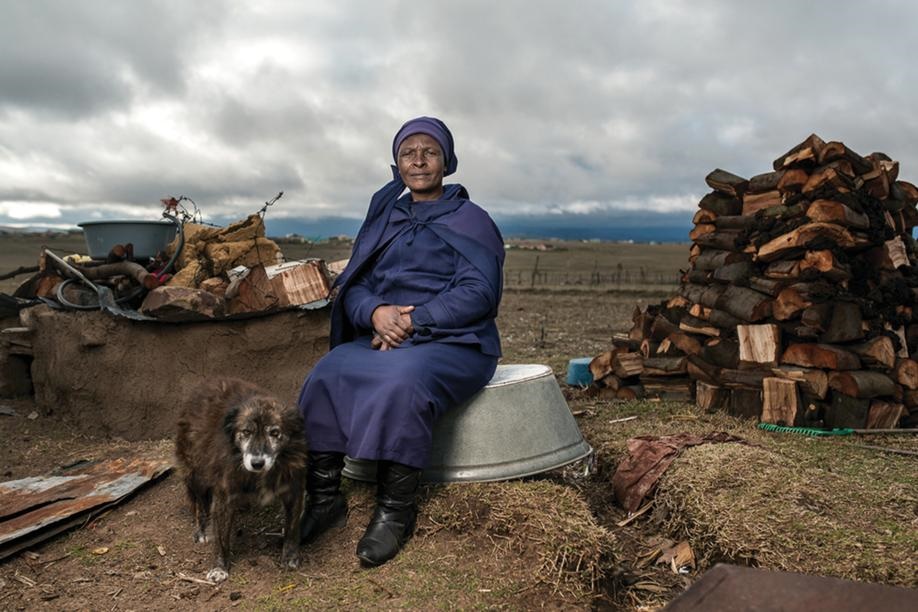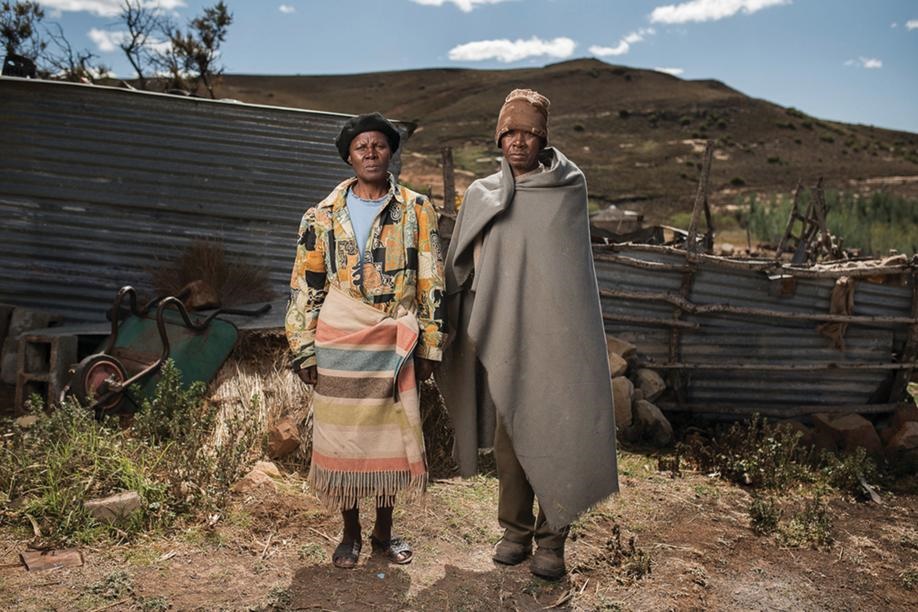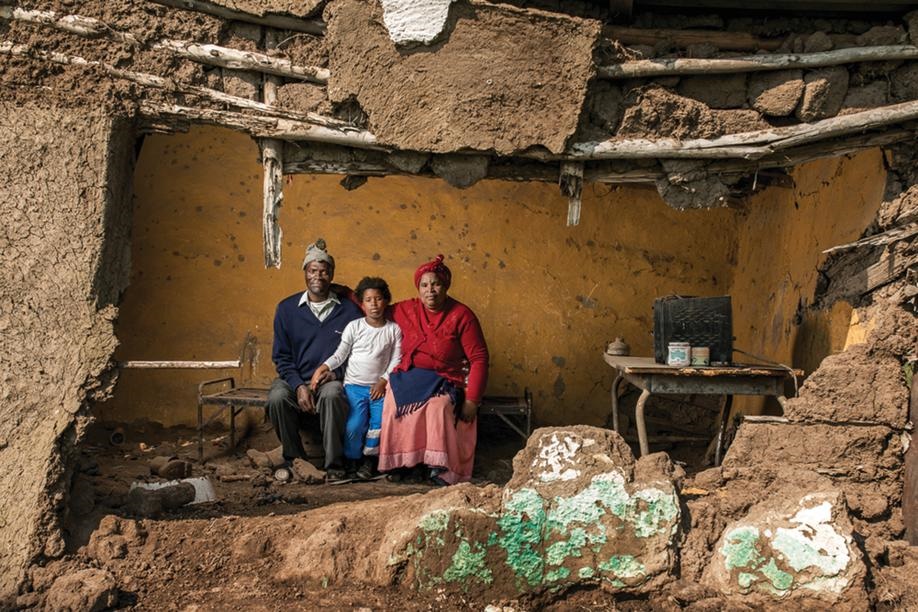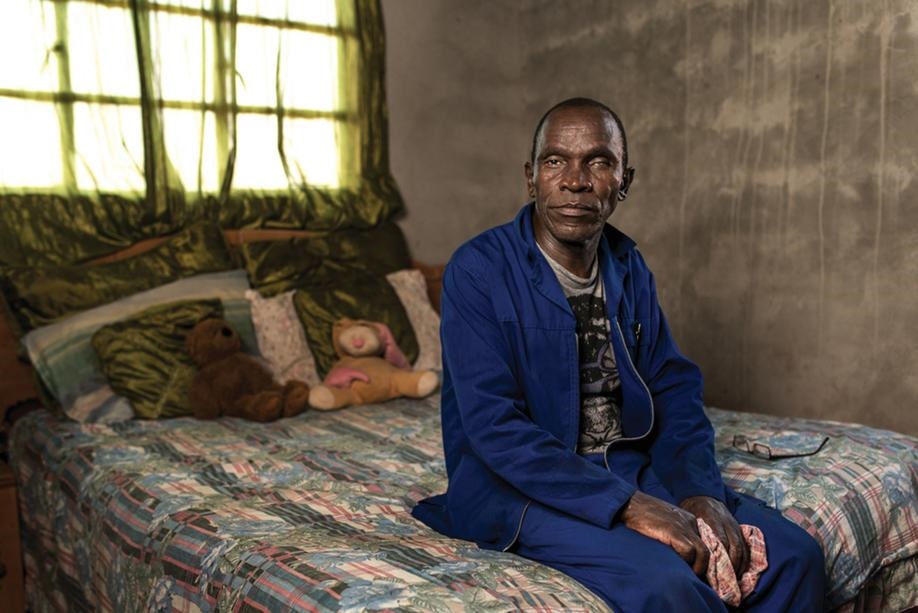Anglo American and AngloGold Ashanti (collectively Anglo) have put up nearly R500 million to settle all the individual silicosis claims against them, setting the stage for a far larger class action that is brewing in the South Gauteng High Court in Johannesburg.
The confidential settlement puts an end to litigation that started 12 years ago. The payout is “up to” R464 million, plus funding to run the compensation trust that is being established.
The mine workers were represented by Richard Meeran from UK law firm Leigh Day, as well as local partner Zanele Mbuyisa from Mbuyisa Neale Attorneys.
It is not clear how many former mine workers will actually benefit from the settlement. Only the lawyers’ 4 365 named clients are in line for compensation and not all of them will receive any cash.
The lawyers’ own estimate is that only about 2 619 people in the group actually suffer from silicosis, based on tests of a random sample.
“There will be a proportion that does not get compensated,” said Meeran yesterday. “In the group as a whole, it could be higher than our estimate – or lower.”
It is also uncertain how much money individual claimants will receive. The pot will be divided among those who qualify, which still needs to be established. The payouts will also depend on the severity of the illness.
The trust will be set up soon and will have to finish its business in six years. Meeran said the process should be wrapped up in four years.
The settlement this week followed a far smaller one reached in 2013 by the same lawyers, also with Anglo. That case involved an undisclosed payout for 16 living and seven dead former employees, and laid the groundwork for the bigger deal.
The cases have walked a crooked path to the UK and back after Anglo successfully challenged the jurisdiction. The legal costs have been settled separately from the compensation money, so the full R464 million is for mine workers.
The lawyers’ fees that Anglo is paying will not be disclosed, said Meeran. After 12 years on the case, “we have not received a cent”. “This has all taken too long, but we believe this is a triumph for justice.”
He said he hoped it would serve as a model for a sector-wide settlement, much like the one being pursued in the class action case instituted by South African lawyer Richard Spoor and a number of other lawyers.
Silicosis is an incurable, progressive lung disease that can be caused by breathing the silica dust released by drilling and blasting in mines. It takes years to develop and, according to recent estimates, 10% of current mine workers older than 45 have it.
A number of studies on former mine workers have found that between 22% and 36% of them eventually develop it.
The main event
This week’s settlement is confidential and includes a “no admission of liability” clause, which means it has no legal impact on Spoor’s class action, which the South Gauteng High Court is expected to either approve or deny in the next few weeks. Spoor on Friday said the settlement nevertheless demonstrated an acknowledgment of sorts.
“It makes [mining companies’] opposition to the class action seem insincere,” he said.
More importantly, it implied that the class action should amount to a claim of R10 billion, said Spoor, who is suing 32 different gold mining companies. Anglo is the largest target.
The class action lawyers estimate that the class of silicotic ex-mine workers could amount to 100 000 living and dead people, which would amount to R100 000 per life.
If the class action fails, the result would probably be a wave of new individual claims similar to the ones Anglo has just settled.
Spoor’s team signed up more than 16 000 individual claimants before launching the class action.
Justice in numbers
The trust that is being created resembles the Asbestos Relief Trust, which was set up after ground-breaking settlements with asbestos companies in 2003 and 2006. That trust still exists and pays out amounts of between R90 000 and R300 000 for different degrees of illness.
As part of the deal, Anglo said it would also pitch in to try to get former employees the benefits they are due anyway under the state’s dysfunctional statutory compensation system.
The system is meant to pay lump sums to any former mine worker who develops a lung disease. It pays out at least R34 458 for silicosis, and a maximum of R105 012.
This week’s settlement suggests an average of about R177 000 per person if the lawyers’ estimates are correct.
The nuts and bolts of the settlement include a few safety measures, which could potentially limit mining companies’ exposure.
The full sum will only be paid to the trust when the lawyers prove that at least 95% of the claimants did work for Anglo.
There is “reasonable evidence” that this hurdle will be met, said Meeran.
To qualify, a claimant would have to prove he worked for Anglo for at least two years. He would then have to undergo a medical examination to prove he has silicosis.
It is not entirely clear how the dependants of dead mine workers would meet this requirement, but Anglo spokesperson Pranill Ramchander said the trustees would rely on documents to prove cases.
Picking up the pieces
Mthobeli Vaphi
Vaphi was overwhelmed with joy yesterday after the multimillion-rand victory that has taken more than 12 years to secure. “I can’t help but cry,” he said.
Vaphi (56), one of the former mine workers to be compensated by AngloGold Ashanti, recalled the day he received a letter from Teba, a mining recruitment agency in the Eastern Cape’s Lusikisiki, informing him that Vaal Reefs Mine would be paying him R57 000 in compensation for developing second-degree silicosis after working on the mine.
At the time, he had no idea what this meant; he was simply happy to be paid out by the company. “Now that I think about it, they were covering up for the irreversible damage they had done to me,” he said.
The father of three from Bolotwa Village in West Pondoland worked at Vaal Reefs Mine from 1983 to 1997, when he took a severance package because of ill health. He was constantly coughing, perpetually tired and losing weight. He had no idea what was wrong with him when he left the mine.
“I just wanted to go back home because I was afraid I would die in this mine without having a child to continue my lineage,” he said.
When Vaphi left home to work in Johannesburg in 1978, he had recently married and had no children. Three years after his return, he and his wife had a son.
There were times when Qubeka thought he would never see the day AngloGold Ashanti took responsibility for the poor health that forced him into early retirement.
The 63-year-old father of eight, who was at the forefront of the landmark case, thought he would die long before a conclusion was reached. “Here I am witnessing this victory ... To say that I am happy is an understatement.
“We never expected to win this battle because it had taken us years and many of my peers died before they could see the conclusion,” he said.
Qubeka, from Hlabatshane Village in Mthatha, recalled the day he was called into a foreman’s office in the late 1990s and told he had silicosis. “I didn’t understand the magnitude of the problem then.
Even when they gave me the R32 000 in compensation, I did not think they were paying me for damaging my lungs,” he said, wheezing like a man on his deathbed.
“The mine finished us. They used us and threw us away as soon as they were done. We are like scraps today that can’t breathe properly or do heavy duties,” he said. “I am happy that they have finally decided to take responsibility for their sins.”




 Publications
Publications
 Partners
Partners













